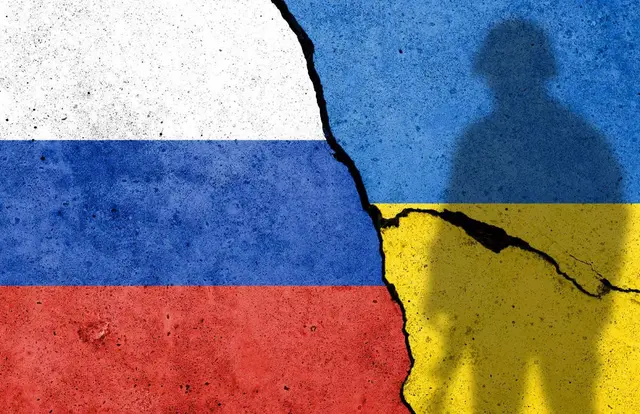Author: Gerald Easter. Department Chairperson. Professor, Boston College.
Russian President Vladimir Putin meets with Chinese leader Xi Jinping at the Kremlin in Moscow on March 21, 2023. It is yet another milestone in the long-term process of the reconfiguration of world politics in the 21st century - a historic process that is now moving rapidly in direct response to the increasingly aggressive attitude and actions of the United States to try to prevent these very changes from happening.
First, economic -- the commitment to robust trade relations between the world's most powerful industrial manufacturer and the world's most prolific energy, metals, and grain exporter provides mutual assurances to each about long-term economic viability. In addition, the summit also reinforced the work on building an alternative international financial system to the dollar dominated global finance system.
Second, security -- the summit was vague about whether Russia and China have arrived at a mutual-defense pact, but it seems clear at least that the relations are moving in that direction. At the point at which Taiwan becomes a US proxy war against China, the way Ukraine is now a US proxy war against Russia, it is important for China to know that Russia will have its bask - and have access to Russian energy and grain, etc. Also, China will benefit from Russian mil-techno assistance in building up a submarine fleet to counter the recent US-UK initiatives in the Pacific.
By finding agreement and vowing to work together in these two key areas - economic and military - the summit effectively shores up the foundation for a 'multi-polar' world order. The summit's display of unity of Russia and China makes it much easier for other countries too, for example, deciding to stop using dollars in int'l trading.
The Ukraine War is a multi-dimensional conflict: a Ukrainian civil war; a Russia quest to have a recognized regional sphere of influence; and, a US proxy war against Russia. The US was unwilling to discuss a security deal with Russia on its western border with NATO. For the US/NATO, the war was supposed to weaken and isolate Russia, but instead it has had unintended consequences. It is now the major event accelerating the process of closer ties between Russia and China, and the consolidation of 21st century multi-polarity.
Meanwhile, the war exposes the limits of US influence and power, and marks the end of Europe's time (500 yrs) as a great global power. Ukraine declined a peace deal a year ago at the insistence of its US/UK partners, who were unwilling to make a compromise with Putin's Russia. Now the situation is much worse for Ukraine.
China's attempt to put an end to the hostilities and begin the process of reaching a compromise peace is laudable. But the main players in the conflict are not ready to stop fighting. Any compromise peace that does not embrace Ukraine's unrealistic territorial demands will be viewed as a loss to US/NATO. Russia will not and does not have to accept a return to pre-2014 borders.
It is a slow destructive grind, but Russia is winning. Ukraine is now compiling its 3rd army in the conflict (the first two were already destroyed). There will likely be a counter-offensive this spring or summer, Russia may again undertake a strategic retreat when that happens. But in the end Russia has too many weapon systems, artillery, and troops. They will push back again and exhaust the ability of Ukraine and US/NATO to match their firepower a fourth time. Ukraine's only chance tis o expand the conflict and get NATO countries involved.
Unfortunately, I do not think that either side is ready to make peace. Moreover, the US is the real decision-maker in the conflict, not the Ukraine. The US will never allow China to take over its Ukraine project and end its proxy war. Only the most dramatic reversal of politics in Ukraine could make it possible - and if (most unlikely) Ukraine suddenly shifted from its pro-Europe position to a pro-China position, it would provoke a civil war.
While Russia and China were on good terms a decade ago, this shift toward closer, mutually-supportive relations has been driven by aggressive American policies to prevent Russia from regaining great power status and undermine the rise of China as a global rival.
At the moment, US politics (both political parties and the major media) displays a strong consensus to defer to the security elites in the Pentagon and the intelligence bureaucracy. Meanwhile, US foreign policy is dominated by pro-war American hegemonists. Of course it is a great irony that US fears over losing its hegemonic role in the world politics compels behavior that has the effect of accelerating the process of American decline.
The US was long in denial that Russia and China were even capable of forging closer relations on the basis of thwarting American ambitions. Now that it is happening, the reaction is predictably shrill. It was no accident that Putin was charged by the ICC on the eve of the summit, or that a US bomber flew on the edge of Russian airspace on the first day, or that the US continues to encourage Taiwan independence.
(APD News)
 简体中文
简体中文

